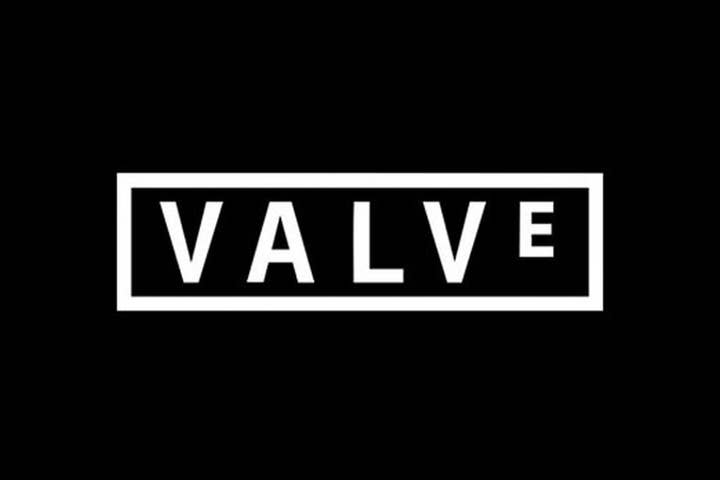Indie developers are unhappy with Steam's new revenue sharing tiers
Developers take to social media to voice concerns that Valve is pushing out indies as it courts AAA
Last Friday, Valve dropped some news that was likely very exciting for a certain subset of developers on Steam. The storefront would be adjusting its revenue share system from a standard 70/30 split to a tiered system, with more revenue going to developers of games that earned over certain thresholds.
Specifically, games that earn over $10 million in sales will see a 75/25 split after reaching the milestone from October 1 onward, and games that earn over $50 million will get to keep 80 percent of their earnings, while Valve takes 20 percent.
The change is, in many ways, an unsurprising one as AAA publishers begin to move away from Steam. Ubisoft and EA have been releasing games on their own launchers for some time now (though Ubisoft, for now, still releases on Steam too), and earlier this year both Bethesda and Activision made moves to buck a trend of Steam releases, with Fallout 76 and Call of Duty: Black Ops 4 staying solidly on the Bethesda Launcher and Battle.net, respectively. Fortnite, arguably the most talked-about game of 2018, also avoided the storefront. Furthermore, Steam now has a new competitor in the Discord Store to worry about.
But it isn't the fact that Steam has changed its revenue split that's frustrated indie developers - rather, it's the fact that the split primarily favors AAA publishers and developers who are all but guaranteed to reach those revenue thresholds and leaves indies where they were before - still struggling. Over the weekend, a number of indie developers took to social media to voice their frustrations with the change.
Freya Holmér, co-founder of Neat Corporation, tweeted a decent summary of the majority of complaints.
"It seems to me like [Steam's revenue share change] isn't too bad of an idea - but some, including me to some extent, consider this to be a blatant middle finger to smaller developers, or like a reversed tax bracketing meant to make the rich richer, which, I suppose, isn't wholly untrue," she said. "But the alternative is that the rich get *even richer* off-Steam, not bringing more people to Steam at all, making it a less viable platform for everyone involved, including indies, as well as forcing players to another client that *don't allow indies at all*"
She did conclude with a more Valve-friendly stance than other indies, however.
"Have things really gotten so bad for Valve in the ever-more competitive storefront scene that they now have to subsidize big studios?"
Rami Ismail
"Valve could likely afford a flat 20% for everyone, and that would help indies as well as AAA studios. However, I think we should at least be happy revenue share is getting better for developers, even if it doesn't help everyone just yet."
Jake Birkett of Grey Alien Games had a more apathetic approach - not because he thought Valve's change was a neutral decision, but because he (and a handful of developers he has spoken to) claims that Steam's discovery algorithm underwent a change in October that demolished sales for various indie games, including his. He's outlined the details in a blog post.
"Since Valve destroyed my revenue at the start of Oct with some changes to discovery, whether they take 30% or less doesn't make much difference sadly," Birkett tweeted. "I'd rather they just fixed what broke/changed."
Most others were less forgiving of Valve, including Vlambeer co-founder Rami Ismail on his Twitter.
"Have things really gotten so bad for Valve in the ever-more competitive storefront scene that they now have to subsidize big studios? Are they that undesirable for large titles now that the large titles tend to be able to launch their own store?"
Tyler Glaiel, creator of The End is Night and a number of other indie games, echoed Ismail's assessment when he remarked that the change "kinda feels like we're basically just subsidizing RDR2's eventual existence on steam."
Some others felt that Valve wasn't doing enough work to justify continuing to take its cut of the revenue from developers.
"In theory, they're supposed to 'earn' their 30% cut by promoting your game to a bigger audience," tweeted Wandersong creator Greg Lobanov. "But games that aren't already popular are also disfavored by the algorithm. So people at the bottom literally get less, and now, pay more.
"Niche, experimental games that broaden their audience are impacted by these decisions"
Greg Lobanov
"It's obvious they did this to appease the biggest money interests...but it's not good for the health of the gaming community or market. Niche, experimental games that broaden their audience like Wandersong are impacted by these decisions."
Another who spoke along those lines was Mike Rose, founder of No More Robots, when he tweeted, "It's just such a tone-deaf move by Valve. The number one thing devs ask me at conferences, without fail, is 'do you think Valve are still within their right to ask for 30% anymore?'. My answer is always 'Kinda, they do X, Y and Z which is really cool.' This has changed my answer."
Hidden Folks developer Adriaan de Jongh was able to speak to his Steam representative and related his takeaway from the conversation in a lengthy Twitter thread. He opened by explaining Steam's reasoning: that bigger games are more valuable to Steam and bring more people to the platform, therefore Valve is willing to 'pay more' for them.
He continued, saying that Valve believes a bigger cut for developers that earn less than $10 million incentivises developers to earn less, not more (though Minit creator and Vlambeer co-founder Jan Willem Nijman found this to be a bit unbelievable.)
When offering his personal opinion on the matter, de Jongh didn't believe the tiered system was the best solution either.
"If Valve is willing to drop their revenue share on games that make 90% of the revenue of Steam, why not create some goodwill with indies and extend that to the 99% who make up for that last 10%?" he said.
Finally, a word from indie publisher Devolver Digital's fictious (yet still official) 'executive' Fork Parker: "If no one buys your game then Valve gets 0% and that, indie developers, is how you stick it to the man."






.jpg?width=291&height=164&fit=crop&quality=80&format=jpg&auto=webp)


